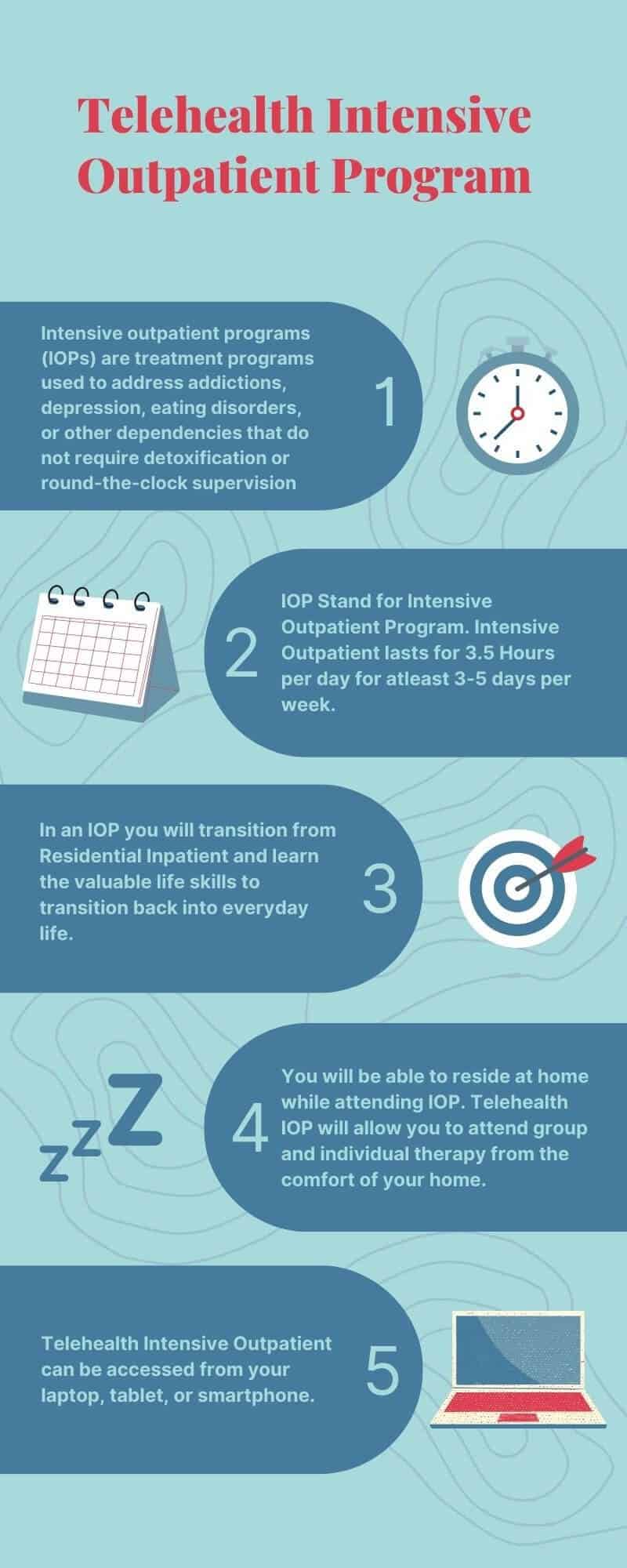Browsing the Complexities of Dual Diagnosis Therapy Within an Extensive Outpatient Program Setting
In the realm of mental wellness and dependency therapy, the crossway of dual diagnosis offers a nuanced obstacle that requires a detailed and tailored approach. By exploring the details of twin medical diagnosis treatment within this extensive outpatient context, a more clear path emerges towards alternative and sustainable recuperation for those grappling with these intertwined challenges.
Dual Medical Diagnosis Overview

Understanding dual medical diagnosis is important as it calls for a comprehensive and integrated approach to treatment. By acknowledging the interaction in between compound use and psychological wellness, doctor can tailor treatments to fulfill the unique requirements of each person. This all natural approach not only addresses signs yet additionally targets hidden factors that add to the double medical diagnosis.
In addition, untreated double diagnosis can cause a cycle of regression and getting worse psychological health symptoms. By recognizing the complexity of dual diagnosis and offering specific care, health care experts can support individuals in achieving long-term healing and enhanced mental wellness.
Tailored Treatment Plans
Acknowledging the complex interplay between substance use disorders and mental health conditions, the advancement of tailored treatment strategies is extremely important in resolving the intricacies of double diagnosis in mental health therapy. Customized treatment plans are customized techniques that consider the unique needs, obstacles, and objectives of individuals facing twin medical diagnosis. These plans are designed collaboratively by a multidisciplinary group of specialists, consisting of psychiatrists, psychologists, social employees, and dependency specialists, to ensure thorough and incorporated care.
Tailored treatment strategies normally entail a combination of therapies, drugs, and behavior interventions that target both the substance usage condition and the mental wellness problem concurrently. These plans may consist of cognitive-behavioral therapy, dialectical behavior therapy, medication-assisted therapy, specific counseling, group therapy, and family members treatment, amongst various other evidence-based treatments. By tailoring therapy strategies to specific conditions, customized strategies can resolve the origin triggers of double diagnosis, advertise long-lasting recovery, and boost overall lifestyle for individuals battling with co-occurring problems.
Integrated Treatment Method
An integrated care approach in twin diagnosis therapy integrates medical, mental, and social treatments to attend to the complicated requirements of individuals with co-occurring material usage disorders and mental health and wellness problems. This approach acknowledges that dealing with one element of a double medical diagnosis without resolving the various other can bring about inadequate results. By incorporating clinical interventions such as medication monitoring for mental wellness conditions with mental treatments like cognitive-behavioral treatment for substance use conditions, individuals get detailed treatment that targets all elements of their twin diagnosis.
By incorporating social interventions like household therapy, professional assistance, and area resources, the therapy becomes much more holistic and tailored to the individual's specific demands - Intensive Outpatient Program (IOP). Overall, an integrated treatment technique in double medical diagnosis therapy within an intensive outpatient program setting aims to provide thorough, effective, and personalized treatment to people dealing with co-occurring disorders.
Obstacles in IOP Establishing
In the context of double diagnosis therapy within an extensive outpatient program, navigating the complexities of co-occurring substance usage disorders and mental wellness problems offers substantial difficulties. One of the key difficulties in the IOP setting is the sychronisation of care between psychological health and wellness experts and drug abuse professionals to make certain a thorough therapy technique. This requires effective interaction, partnership, and a deep understanding of how these problems communicate and affect each various other.

In addition, dealing with stigma and resistance to therapy within the IOP setup can hamper development. Some discover here people might be hesitant to disclose their double diagnosis or might really feel ashamed, impeding their involvement in the therapeutic process. Getting over these barriers requires a helpful and non-judgmental setting that fosters count on and openness.

Collaborative Expert Initiatives
Efficient double diagnosis therapy in an intensive outpatient program requires seamless collaboration amongst mental health and wellness professionals and material misuse specialists to ensure a thorough and incorporated technique to care. By working with each other, these specialists can develop customized treatment plans that provide to the special requirements of each client, considering both their psychological health and material misuse difficulties.
Joint efforts additionally encompass routine interaction and info sharing among group participants to guarantee a natural treatment strategy. This might involve situation meetings, joint sessions with the client, or shared documents to track development and adjust therapy techniques as required. Additionally, collaboration might consist of involving other medical care specialists such as medical care physicians anonymous or household specialists to give all natural support to the patient. Ultimately, an unified front of experts functioning with each other boosts the performance of dual diagnosis treatment within an intensive outpatient program.
Verdict
Finally, reliable twin medical diagnosis therapy within an extensive outpatient program setup calls for customized therapy strategies and an incorporated care approach. Challenges might develop in this setting, but collaborative initiatives amongst experts can help navigate these intricacies. link By resolving the special requirements of individuals with co-occurring psychological wellness and compound use problems, IOP programs can supply detailed and alternative care to sustain healing and overall health.